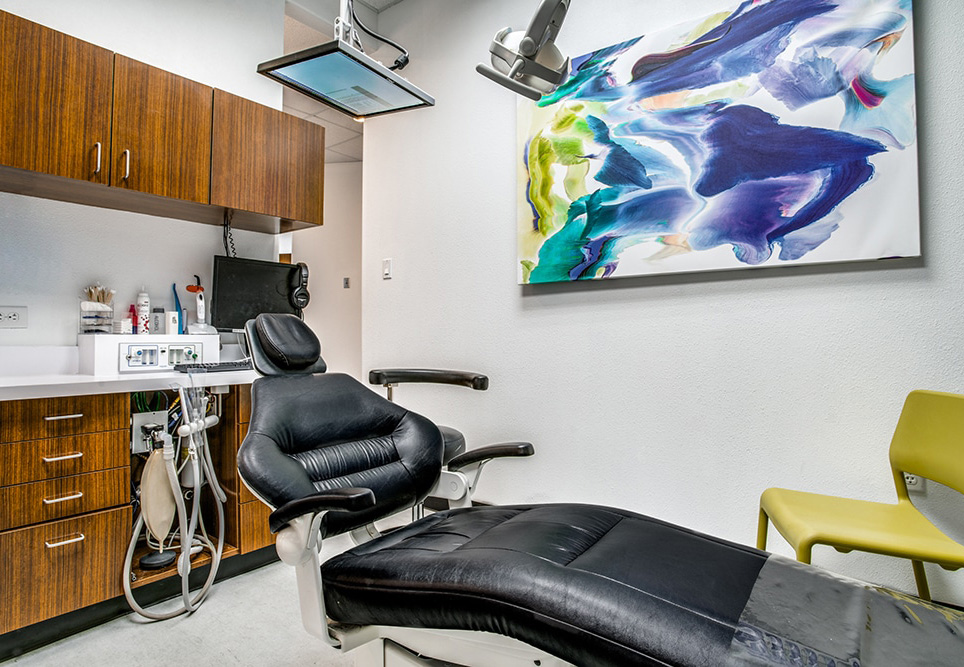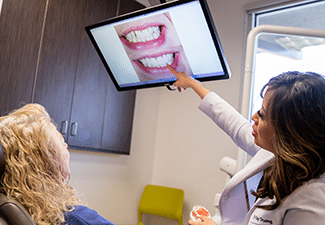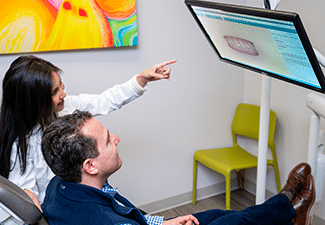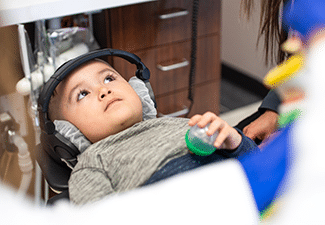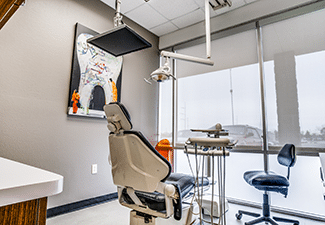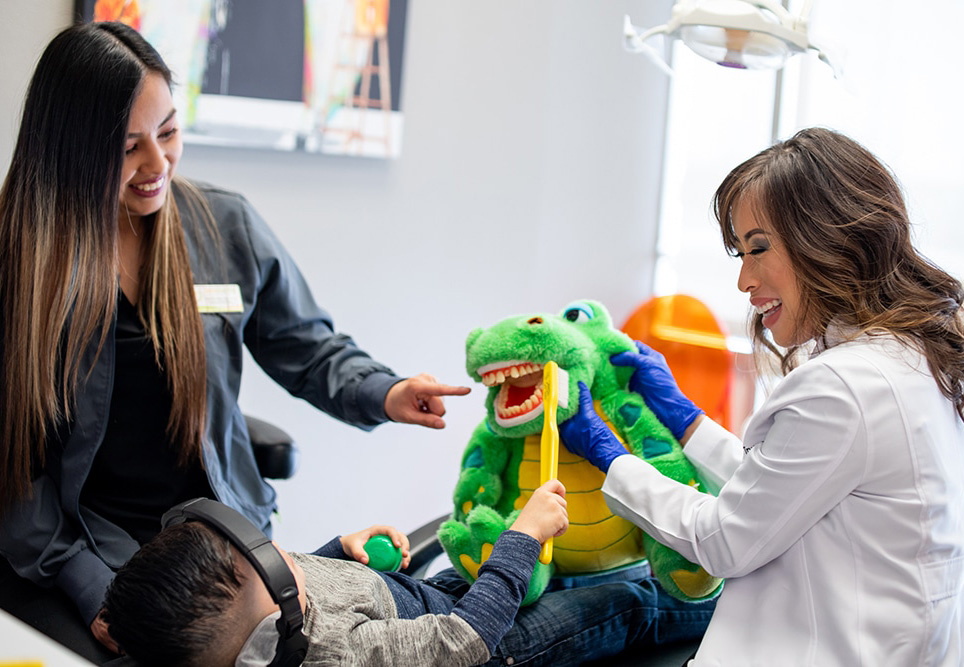
When our bite becomes imbalanced, this could strain the joints connecting our jaw and lead to painful symptoms. In these situations, you may have TMJ disorder, also known as TMD, and bruxism (chronic teeth grinding). Without treatment, you increase your risk of damaged teeth! In today’s blog, your Richardson, TX, dentist talks about how we diagnose and treat issues like TMJ disorder and bruxism.
When to Seek Treatment
When you experience painful symptoms in and around your smile, you should always contact your dentist for a diagnosis and to discuss possible treatment options. Common warning signs of these two separate, but often related, oral health issues include headaches, migraines, popping or clicking in the jaw, facial aches, ear pain, and aches in the neck and shoulders. Tooth sensitivity when eating and drinking is common too, as are persistent toothaches. When you experience similar symptoms, you should contact our team to schedule an exam. Our team will thoroughly examine the teeth, jaws, and oral structures for common signs of imbalance and wear and friction, so we can assess the cause and severity of your oral health concern. We then create a treatment plan tailored to your smile!
TMJ Disorder
The temporomandibular joints connect our jaw and skull, and control the movements we need to eat and speak. When these become strained, this could allow TMD to develop and with it, problems fully opening and closing the mouth. Not to mention the uncomfortable symptoms we discussed above! Causes include issues that upset bite balance, such as injury to the face or jaw, tooth loss, malocclusion, or even untreated bruxism. Treatment helps improve balance and comfort, and allows you to avoid complications with how you eat and speak.
Teeth Grinding
What about bruxism? With bruxism we grind and clench our teeth on a regular basis as we sleep. The disorder could be caused by untreated TMJ disorder, or high levels of stress in your daily life. Other factors include missing teeth, dental misalignment, injury to the smile, or complications with the growth and development of your smile. The pressure from grinding and clenching your teeth will begin to wear down outer enamel and tooth structure. This increases the risk of tooth decay and dental infection, as the inner tissues are now exposed to bacteria once the enamel is worn down. Teeth could appear small and uneven, and could become cracked or chipped.
Complications
As we touched on above, this could damage teeth and close sensitive inner structures to bacteria, leading to the onset of cavities or even dental infections. The imbalance could lead to relaxed oral health issues, and further threaten your smile’s function and appearance. Without treatment, you risk serious oral health problems and worsening discomfort! Which is why you should see our team for treatment.
Preventive Actions
You can take steps to help control the issue and reduce the risk of major complications. For example, try to avoid chewing on pens and hard objects like ice. You should cut back on chewy foods too, as the actions needed to consume them could exacerbate symptoms. Try to use a warm washcloth to ease tension in the jaw, and see what you can do to lower stress in your daily life. The daily actions can help limit damage and serious problems until our team can begin treatment.
Potential Treatment Options
Treatment could vary, as every smile is different and each case is unique. We begin with a thorough exam using digital imaging technology and x-rays. From there we create a treatment plan. For some, we could use Invisalign® aligners to gently shift the uneven teeth and correct misalignment, easing pressure on the jaw joints. A dental crown could help improve overall bite balance, as could dental bonding or contouring, and we can often offer these in a single appointment. If you have missing teeth, we could fill the gaps and improve bite balance with a dental prosthetic. For minor tooth loss, we could use bridges or individual dental implants. For more complicated bases, we have full and partial dentures, which can be removable or secure with advanced implant dentistry. These options help address poor oral health and allow you to smile with confidence!
Oral Appliance Therapy
Our team could also help with an oral appliance. Crafted and custom-fitted based on the detailed digital images we take of your smile, this device will look and fit much like a simple mouthguard. However, it is designed to shift the smile to ease pressure and prevent symptoms. This not only treats the factors behind TMD and bruxism but helps prevent further damage to the teeth by placing a gentle and soft barrier between the upper and lower sets of teeth. You’re able to enjoy your waking hours free of painful symptoms, and avoid further problems with the appearance and function of your smile.
Sleep Apnea
Often, the same factors behind the onset of TMJ disorder and teeth grinding could impact how easily you breathe at night. Obstructed airways could lead to sleep apnea, in which you wake several items in the night to resume breathing after airways are completely obstructed by soft tissues. Even if you don’t remember these episodes occurring, they interrupt your sleep cycle and leave you exhausted. For those with untreated sleep apnea, the risk of a weakened immune system and strained cardiovascular system increases with time. But again, an oral appliance can help move the jaw forward to prevent the collapse of soft tissues and keep airways free and open, so you breathe (and sleep) without interruption.
If you have any questions about correcting the imbalance and strain in your jaw with an oral appearance, then contact our team today to learn more.
Your Richardson, TX, Dentist Offers Better Bite Balance
We would like to help you find the best solution for your untreated TMD or teeth grinding. For more information how our team restores bite balance and repairs dental damage, then please schedule a consultation by calling the Viva Dental Family Dentistry office nearest you at (214) 337-7800 (Dallas) or (972) 437-6000 (Richardson). We don’t want what starts as minor discomfort to lead to damaged teeth.







